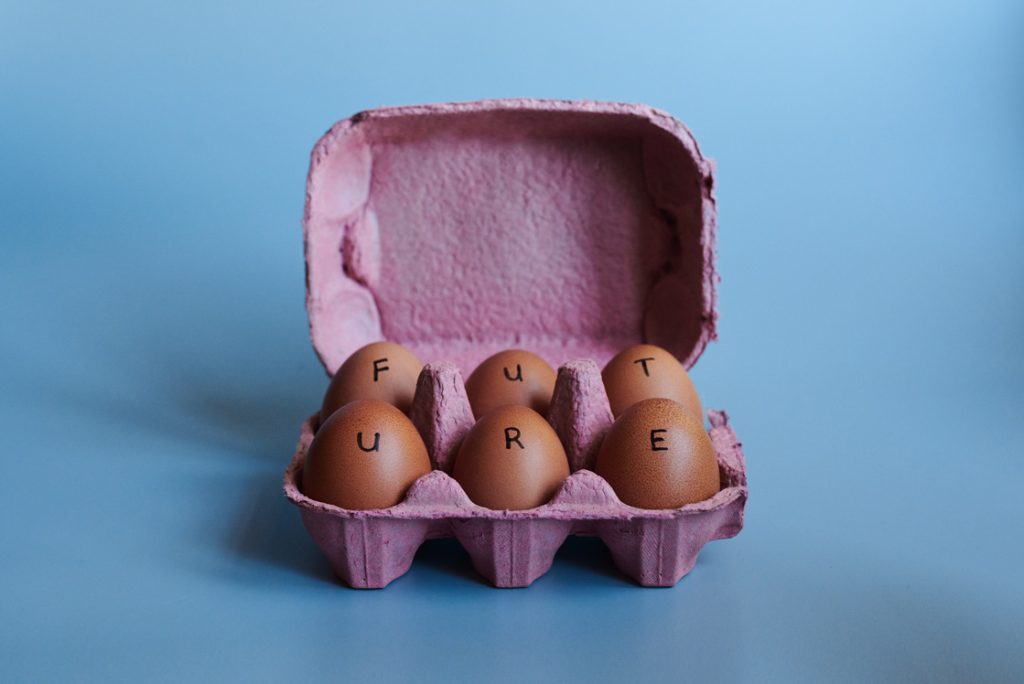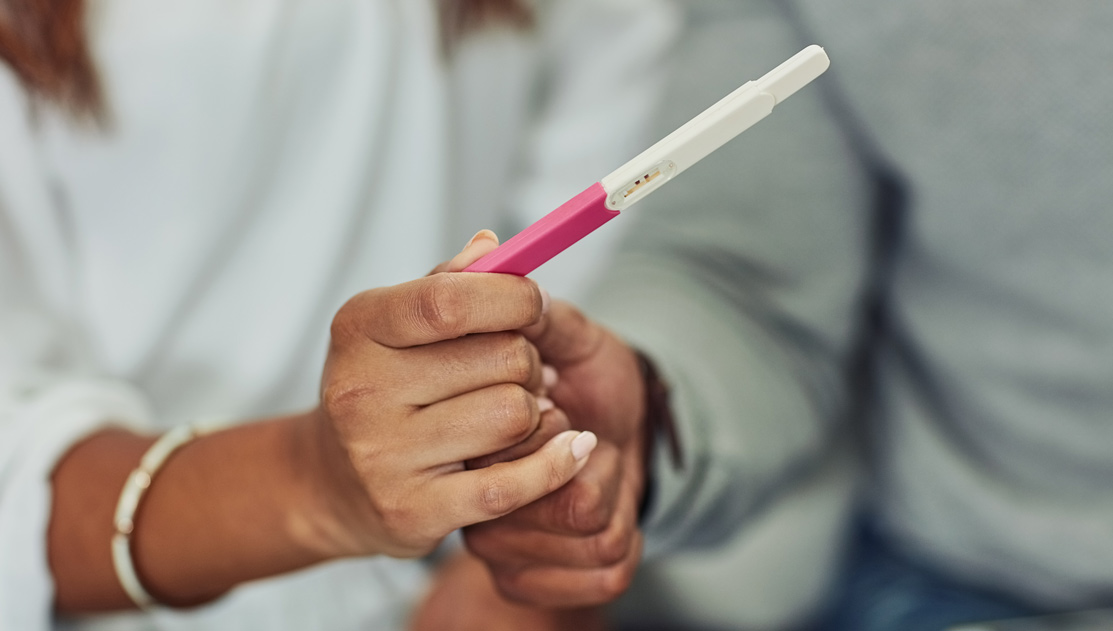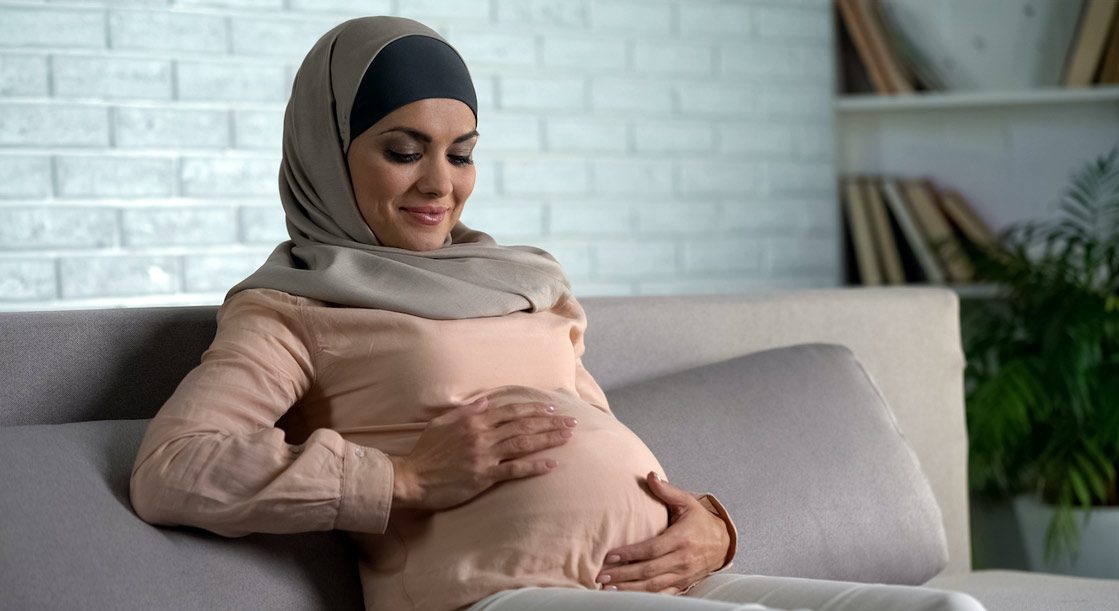If you are considering delaying parenthood for any reason, you may be wondering about fertility preservation. Age is the single biggest factor affecting fertility, but thanks to modern science there are usually steps you can take to reduce the effects of age on fertility. So, what is fertility preservation, who is it for and how does it work? Read on and we’ll separate myth from reality.
What is fertility preservation?
Fertility preservation is the process of retrieving and freezing eggs, sperm, embryos, or even reproductive tissue in the hope of starting a family later on.
There are many reasons people opt for fertility preservation. These include when:
- You are mindful of age-related fertility decline.
- You haven’t met the right partner yet.
- You are a young woman but have a family history of premature ovarian failure (POF).
- You are a member of the armed forces being deployed to a war zone, or otherwise at risk of injury or death.
- You are in line to have medical procedures that could compromise your fertility (for example chemotherapy, radiotherapy and some surgical interventions).
- You are about to undergo gender reassignment (surgery or hormone treatment, both of which can damage fertility either partially or totally).
- You are a young woman with a low ovarian reserve and you do not wish to have children yet.
- You are a man with a low sperm count or have sperm that is showing signs of decline.
- You may want fertility treatment in the future but could have difficulty producing a sperm sample on the day of fertilisation.
- You have undergone surgical sperm retrieval (PESA/TESA) and have a surplus of sperm that you don’t want to go to waste.
Dr Gorgy, Fertility Consultant at The Fertility and Gynaecology Academy says: “There are many reasons that people could choose fertility preservation but by far the most common one we see in fertility clinics is the need for more time. For example, time to find the right partner, time to progress sufficiently in their career, time to make enough money to sustain a family, time to buy a home with enough space. People want time to build the life most conducive to raising children, but as we say here at The Fertility and Gynaecology Academy, time is fertility. That is where fertility preservation techniques come in.”
Time is fertility: telling the truth about age and fertility
The single biggest factor that affects fertility is age. That’s just a fact of life and it’s a fact affecting men as well as women.
As women get older, both the quantity and quality of their eggs (and chances of conceiving a baby) will drop. This drop steepens after a woman’s mid-thirties and spikes downwards more sharply after age 40. While the exact rate of this decline will vary from woman to woman depending on influences such as genetics and lifestyle, it remains a fact for everyone.
This is why egg freezing is increasingly popular, particularly among career-focused women. Opting for fertility preservation at an age in which your ovaries are still producing high quality eggs – so you can then use those eggs for future pregnancy – is seen as a kind of insurance option if you aren’t in the best position to start a family yet.
Contrary to popular belief, male fertility is subject to age-related decline too. We all know the odd story of a man having babies into old age, but these events are rare. Around one third of fertility issues stem from male factor infertility. Climbing paternal age is linked to declining sperm quality and testicular function. Older men are more likely to struggle to have children. Later fatherhood is also associated with a higher risk of genetic defects and chromosomal abnormalities. Bearing all this in mind, many men are opting for fertility preservation too.
How does fertility preservation work?
The process of fertility preservation depends upon whether you are a man or a woman and whether you are preserving gametes (eggs or sperm) or in rarer cases reproductive tissue. Let’s look at them in turn.
The egg freezing process
With egg freezing, getting ready for egg retrieval is the same as in the IVF process. The first step is thorough consultation in a fertility clinic to ensure that you are put on a suitable medication protocol. In order to give you the best chance of future success, we want to harvest a good number of eggs. This means we need to stimulate your ovaries to produce more eggs than normal. You see, in a normal ovulation cycle, a woman usually produces just one mature egg – but for the best chance of a baby in future, we want to produce around 8-15 eggs for freezing. So, we stimulate the ovaries to produce more eggs through the use of hormone medications. These will be administered via daily injections that we will show you how to give yourself. This process is called controlled ovarian stimulation, and it’s the same as the early part of an IVF cycle. You’ll have one type of medication that stimulates your ovaries to generate more eggs, and another that stops you from ovulating before egg collection.
It’s very important that you are on the right medication protocol, so a good fertility clinic will carefully assess you, monitoring you as the process continues – via blood tests, and scans every 2-3 days. In this way, your doctors are making sure your ovaries are responding optimally. After around 10-12 days, you will be given a final ‘trigger injection’ to mature the eggs, before they are retrieved under sedation about 36 hours later. Once the eggs are collected, they will be assessed and the mature eggs will be mixed with a freezing solution to preserve them.
Different clinics may use different freezing methods. Here at The Fertility and Gynaecology Academy, we employ a method of ‘flash freezing’ called vitrification – the most advanced technique for egg freezing. With vitrification, your eggs are frozen within 5-10 minutes, which drastically lowers the risk of cell damage that can happen when egg freezing is performed over hours via older, slow freezing techniques.
Your eggs will then be stored. In the past, most women were only allowed to store their eggs for up to 10 years, but thanks to recent momentous progress in freezing technology, UK law now lets any woman who so chooses store her frozen eggs for up to 55 years. This makes it much more feasible for women to have their eggs retrieved in the years when they are most fertile – because they no longer have to worry about the storage time limit expiring before they are ready to start a family.
To use your eggs in years to come, they will be thawed and fertilised with sperm, in a process called ICSI. One of the resulting embryos is then put back into your womb a few days after, to grow and develop.
Embryo freezing
Sometimes two people may decide to freeze fertilised eggs and sperm (embryos) for use at a later date. The process of ovarian stimulation and egg retrieval is the same as in egg freezing (above), but the difference is in what happens after egg retrieval. Instead of freezing the eggs immediately, the eggs are fertilised with sperm in the laboratory (IVF or intracytoplasmic sperm injection ICSI) to make embryos, which are then frozen for later use. There are pros and cons to egg freezing versus embryo freezing. Embryos typically have a slightly higher survival rate than eggs, but of course, embryo freezing requires an appropriate sperm provider to also consent to the embryos being continually stored and used in future years. If either you or your partner changes their mind and withdraws their consent, the embryos cannot be used. For these reasons, many women choosing fertility preservation opt for egg freezing over embryo freezing.
Sperm freezing
Usually preparation for sperm freezing can be simple, non-invasive, and performed in a private room at a fertility clinic. However, in cases where a man does not have sperm in the ejaculate, has a blockage in the sperm passage tube (obstructive azoospermia) or very low sperm production in the testicles (non-obstructive azoospermia) , surgical sperm aspiration (PESA/TESA) can be performed. A fine needle is inserted either into the epididymis (a structure next to the testicle) or the testicles to retrieve the sperm – this can be performed under local anaesthetic or sedation. Enormous advances in freezing technology now mean the survival rate of sperm through the freezing process is very high.
Reproductive tissue freezing
This is a much more unusual means of fertility preservation (testicular tissue preservation or ovarian tissue preservation) and is often employed for younger people who may not be able to produce viable eggs or sperm for freezing, or in cancer patients who will be starting chemotherapy or radiotherapy.
Popular fertility preservation myths
MYTH: Egg freezing damages your future fertility
REALITY: Egg freezing does not lessen your chances of conceiving a baby via natural means in years to come. And it doesn’t deplete your ovarian reserve. Here’s why. Every month, in addition to the mature egg that survives the ovulatory process, several other eggs are activated without maturing fully, and they normally simply perish in a process named ‘atresia’. What the process of controlled ovarian stimulation with hormone medicine and retrieval for egg freezing does, is just salvage eggs that would be otherwise lost. It’s a very clever process! These salvaged eggs are simply a back-up option. If you don’t need to use them, you can either donate them or have them disposed of as you wish.
MYTH: Fertility preservation methods guarantee you’ll have kids in the future
REALITY: Dr Gorgy says: “It’s very important that ethical doctors tell patients the truth. Yes, sperm and egg freezing can help boost your chances of a live birth in future, as opposed to using fresh older eggs for example. But the best science in the world can’t preserve all the aspects of a woman’s fertility. Your frozen eggs may be young but the uterus ages too. Fertility preservation methods are a way of helping to boost the odds if you plan on delaying parenthood – but they can’t guarantee a baby in the future.”
MYTH: Fertility preservation methods could be less safe for a baby conceived this way
REALITY: There is no evidence of any greater risk of chromosomal abnormalities, birth defects, or developmental issues in children conceived via sperm or egg freezing. Actually, making use of higher quality frozen sperm or eggs retrieved when a man or woman was younger can bring down the risks associated with older motherhood (and fatherhood), like the risk of chromosomal and genetic issues, as well as miscarriage. In fact, a woman aged 40+ is more likely to experience a healthy pregnancy using embryos created in her mid-30s than her fresh embryos at that age.
Do you need to delay starting a family?
Want to talk through your options? The Fertility and Gynaecology Academy is home to some of the most experienced fertility experts in the UK and state-of-the-art technology. If you are considering fertility preservation we will talk straightforwardly through your options with you.
To book a consultation call now on 020 7224 1880 or email info@fertility-academy.co.uk







